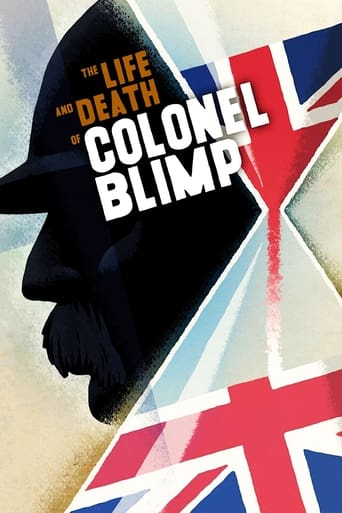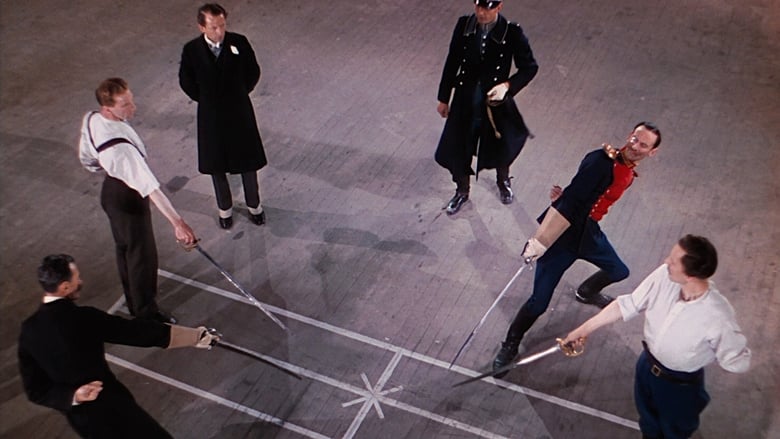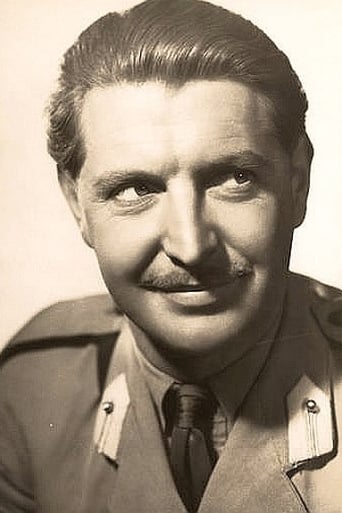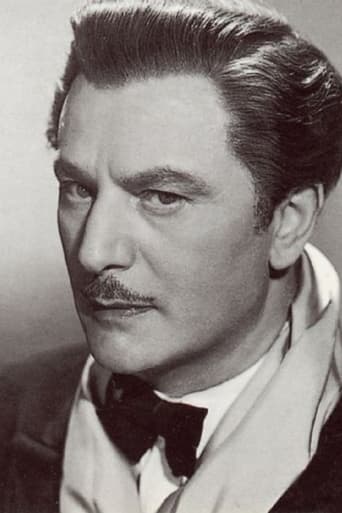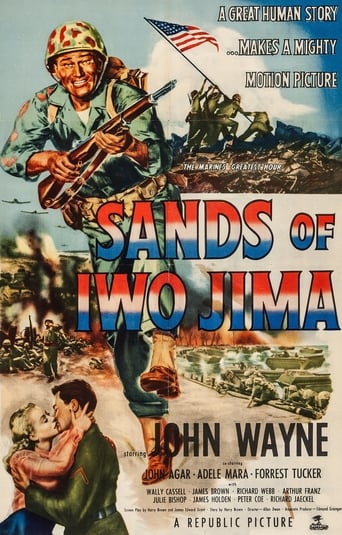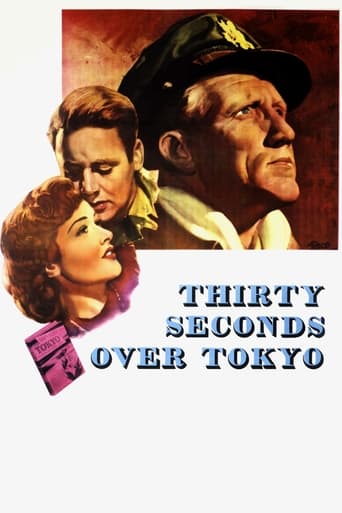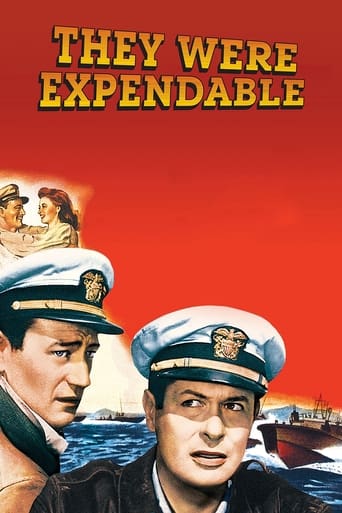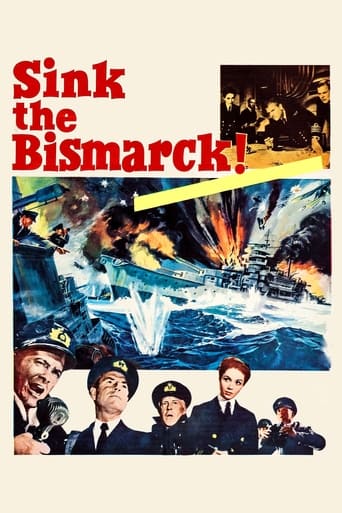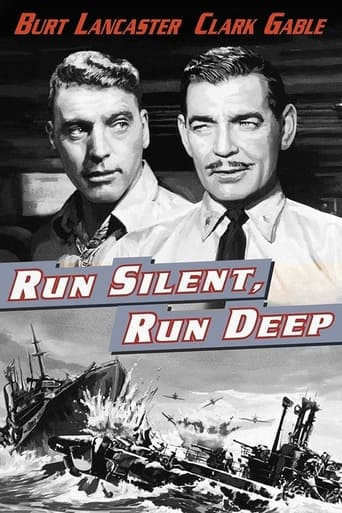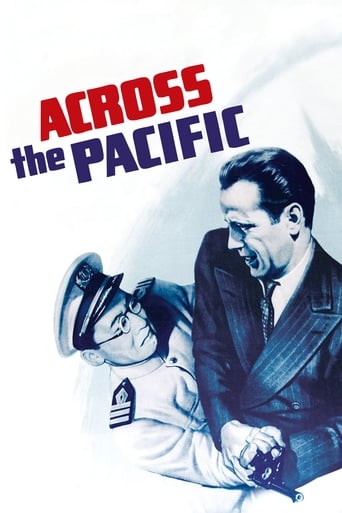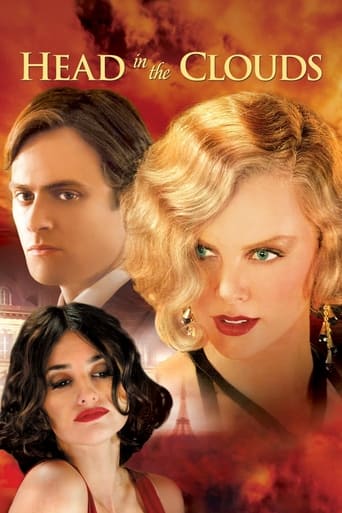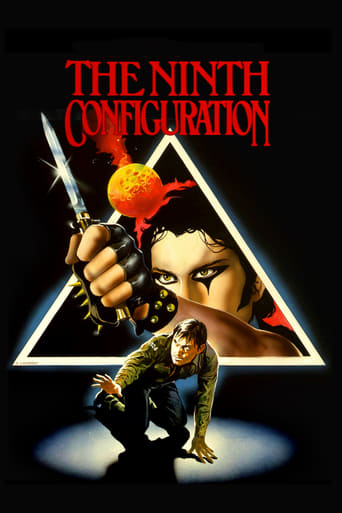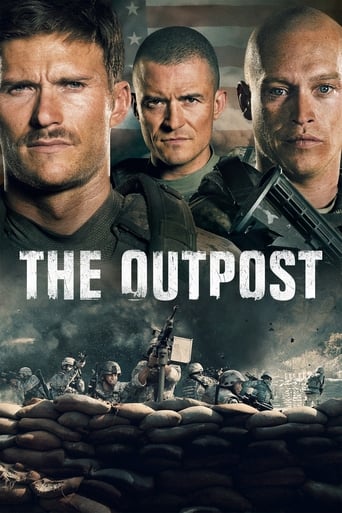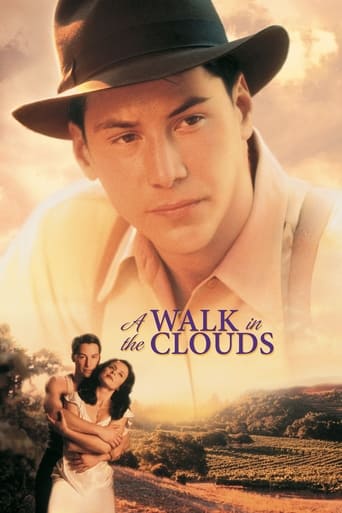The Life and Death of Colonel Blimp (1945)
General Candy, who's overseeing an English squad in 1943, is a veteran leader who doesn't have the respect of the men he's training and is considered out-of-touch with what's needed to win the war. But it wasn't always this way. Flashing back to his early career in the Boer War and World War I, we see a dashing young officer whose life has been shaped by three different women, and by a lasting friendship with a German soldier.
Watch Trailer
Cast


Similar titles
Reviews
Save your money for something good and enjoyable
Really Surprised!
Pretty good movie overall. First half was nothing special but it got better as it went along.
The film never slows down or bores, plunging from one harrowing sequence to the next.
Colonel Blimp was a humorous cartoon figure born in 1934 with whom British audiences would have been familiar. The inventor claimed to have been inspired by hearing British officers in a Turkish bath arguing that cavalry officers should be permitted to wear spurs inside tanks.The opening credits suggest the Victorian origins of Colonel Blimp's character by use of a needlework tapestry in which the names of the featured players are embroidered. In the center is the rotund, red-faced mounted figure of Colonel Blimp himself, clad only in his signature Turkish towel.The movie opens with a military exercise in which the Home Guard is to defend London from a simulated attack scheduled for midnight. A clever young Army officer decides to jump the gun by six hours, since "the real thing" isn't played by rules. Despite the efforts of a young female military driver (English beauty Deborah Kerr in one of three roles) the dastardly sneak attack succeeds, and the aged Home Guard commanding general and his staff are captured - in a Turkish bath.The viewer's sympathy lies with the young Army officer, who has a realistic view of World War Two. The overweight General Clive Candy - in his Turkish towel - goes red-faced and sputters through his moustache about fair play, and we laugh at the ridiculous figure with his outmoded view of war.Then the movie takes us back 40 years to see a lean and dashing officer who has won the Victoria Cross in the Boer War. Upon receipt of a letter informing him of German lies about British atrocities, he goes on a personal mission to Berlin to refute them. He meets a beautiful English governess who penned the letter (another role for Kerr) and insults the German officer corps in a beer hall, which leads to a duel with Theo Kretschmar-Shuldorff, played by Anton Walbrook (Boris Lermantov in The Red Shoes).The Bear will not spoil the outcome, but we learn the reason for the General's ridiculous mustache. The duelists become fast friends and fall in love with the same governess. Candy acts as if he could not be more pleased for the couple, but then we see him at the theater with the sister of the governess.Let's just say she's no Deborah Kerr.During WWI, now-General Candy meets a nurse who bears a striking resemblance to his first love. When the armistice is signed, he drinks a toast with his driver and gives a little speech about how the Huns waged a barbaric war, but the British won through fair play. He marries the nurse and is reunited with his old German friend, who is now interred in an English POW camp. It is significant that she is 20 years his junior; his living in the past is reflected in his obsession with his first love. After his wife dies, her portrait humorously takes pride of place in his study along with all of his other trophy heads. Her last "incarnation" is the spunky military driver "Johnny" we see in the opening and closing scenes. She happens to be the girlfriend of the cheeky Army officer who cheated in the exercise, and one of the last things General Candy does is to make sure he doesn't get in trouble. It is as if he at least finally lets go of his obsession with the girl of 40 years before and allows her to be claimed by the next generation.At a farewell dinner, the British dignitaries are mostly cool to the defeated German officer, but by the end, they're doing their best to cheer him up about the prospects for him and his country.History proved them wrong, as the original audience would know, and today's audience should never forget. World War Two was the unfinished business of The Great War.The passage of time is cleverly marked by the accumulation of wild game trophies mounted in General Candy's study. By the time World War Two arrives, the world seems to have no room for the Colonel Blimp-like General Candy, now a widower, and his quaint ideas. Once again, his German friend is in England - this time as a refugee. His wife (Candy's first love) has died and both his sons are "good Nazis."The role for Walbrook is poignant because he really did flee Nazi Germany due to two strikes against him: Walbrook was half-Jewish and a homosexual. Theo Kretschmar-Shuldorff understands that Nazis represent an existential threat to civilization, and has grown wiser with years. We feel his pain as he must watch, from the wisdom of bitter experience, his old, naive friend face humiliation.Nonetheless, General Candy seems to find a place in his old age: commanding the Home Guard. The movie ends with a replay of the beginning, only now the viewer has more sympathy for the obese general with his Turkish towel and ridiculous mustache.It is another Technicolor feast for the eyes, although not up to The Red Shoes' visual level. This was wartime, after all, and Technicolor was expensive enough. Many scenes are shot on a soundstage before painted backdrops, but that does not detract.The film starts with a lot of energy and the pace and patter is brisk with some laugh-out-loud moments. It seems almost to age along with General Candy as the terrible new realities of two World Wars take their toll. It is funny, even as we go from laughing at General Candy to laughing with him. It becomes more poignant and even sad as World War Two overtakes it even as it has overtaken its original audience.Women are depicted as intelligent and capable, eventually taking their place in uniform by the end. There are some choice anti-German lines. Here is an observation by General Candy's wife (Kerr also) as they watch German WWI POWs enjoying a concert."I was thinking - how odd they are, queer. For years and years they're writing and dreaming beautiful music and beautiful poetry. All of a sudden they start a war, sink undefended ships, shoot innocent hostages, and bomb and destroy whole streets in London, killing little children. And then they sit down in the same butcher's uniform, and listen to Mendelssohn and Schubert. Something horrid about that... "The acting is very good. Kerr has that fair-skinned beauty that seems to be unique to the British Isles, and we are treated to same kind of set-piece profile shots we see in The Red Shoes. Walbrook plays a far more likeable character than Boris Lermontov, and Roger Livesey's General Clive Candy is humorous and convincing both as the idealistic young hero of the Boer War and the idealistic old fool of World War Two.Part of the reason the Bear finds this movie interesting is in trying to see it through the eyes of the British moviegoer of 1943. To the extent the message seems to justify adopting the worst methods of the enemy in order to prevail in an unprecedented kind of war, it is a little chilling. When old General Candy's BBC broadcast is cancelled, his German friend Theo tells him this:"I read your broadcast up to the point where you describe the collapse of France. You commented on Nazi methods--foul fighting, bombing refugees, machine-gunning hospitals, lifeboats, lightships, bailed-out pilots--by saying that you despised them, that you would be ashamed to fight on their side and that you would sooner accept defeat than victory if it could only be won by those methods."Theo disagrees. He is the expert on Nazis, after all. The message of the movie is Theo is right and General Candy is wrong. To beat Nazis, you must use the methods of Nazis.By 1943, the Germans had been turned back at Stalingrad and the Japanese defeated in the Battle of Midway. The Blitz was over, but V2 rockets were in the future. It is easy for us to say the tide had turned, but Allied victory was by no means obvious at the time and much hard fighting lay ahead, including D-Day and the conquest of Germany.Boomers may have an ambivalent historical appreciation for dreadful exigencies like the fire-bombing of Dresden and the atomic bombs over Hiroshima and Nagasaki, but to see it unapologetically championed in a movie of that time is a little disconcerting. If General Candy were to find himself in today's world, his ideals of limited war and fair play (or at least better public relations) might find a more receptive audience.The movie ends on a forced, upbeat wartime note, but we are meant to see General Candy as a pitiable relic and his ideals as a thing of the past. The genuine optimism is that for all the loose social media chatter about Nazis, we did not have to become them after all.At least not permanently.
Although the days of Colonel Blimp are but a memory in the United Kingdom, The Life And Death Of Colonel Blimp is a film that might be misinterpreted and misunderstood on this side of the Atlantic. I'm betting that most younger filmgoers would not be familiar with David Low's famous cartoon caricature of the British reactionary in the Twenties and Thirties. As we see him in later life, Colonel Blimp is fleshed out and given the name of Clive Wynne-Candy retired brigadier general of the British army who saw service in the Boer War, World War I, and God knows how many other posts in the Empire on which the sun never set. When you see Roger Livesey in old age that was the perfect image of Low's creation.In the newspapers Low's caricature has a bit more acid thrown at him, he's a figure of derision. In the film Livesey is a well meaning fathead who thinks those maxims about fair play and good sportsmanship have a place in a country that is at war with a totally ruthless enemy. It's how the British see themselves and the film as propaganda was designed to knock those illusions out.Livesey delivers a marvelous performance and kudos have to go to the makeup department that producers Powell-Pressburger used in showing the aging of Livesey's character from a young lieutenant who while in Berlin gets into a duel with Anton Walbrook who becomes his lifelong friend despite the different sides their countries are on.Walbrook for me however gives the best performance in the film. His character also grows and changes with age and his scene with British officials circa 1935 as he's an old and broken man just wanting asylum in the country that he fought against from 1914 to 1918, but where his best friend in the world is located is just brilliant.Deborah Kerr plays three different roles and in those three parts she shows three generations of British womanhood, first as the woman that Walbrook won from Livesey in 1903, then as a nurse on the western front who Livesey eventually marries, and finally as his young driver during World War II. In the Citadel Film series book on the British cinema, Kerr said that this was her greatest acting challenge up to that point and the way she dealt with it was to pretend she was in three different films in essaying each character.The Life And Death Of Colonel Blimp is a fine piece of work and is still enjoyable, but to really appreciate it you would have to know about cartoonist David Low and his creation.
It's absolutely extraordinary that The Life and Death of Colonel Blimp was the product of Britain's wartime film industry. Not in as long as I can remember have I sat through a nearly three hour film and relished every minute of it. It's a thing of simple joy, ravishing visual beauty, great, purposeful moral, all genuinely fabulously performed.The 'Colonel Blimp' of the title is in fact General Clive Wynne-Candy, a fictional ageing general who, in 1943, is a lead figure in the formation and organisation of the Home Guard. However, as we learn by following his past career, life and loves, he has seen war in all its guises before then. And even as he has always been defined by his relationship with the military and the changing face of conflict, so he is defined emotionally by his abiding love of the woman he 'gave away' to the man she loved, a firm friend and a German officer, who he first met when challenged to duel him over a careless public offence.Such sagas are often over-weildy, heavy-handed experiences, and film is often not a good medium for the extended life story. Yet in this instance the story is told with such colour (literally), such visual and dramatic flair and with such great depth and intelligence, that it never loses its colour, or its gentle and fond, but striking, satirical humour.Candy is the stereotypical Boer War officer, a Victoria Cross receiver, who firmly understands the rules and expectations of gentlemanly decency. The pace and style of the piece beautifully modulate between the different social and military eras represented. So we see him first as a young man in the mannered world of the first decade of the 1900s. His speech and manners are clipped and precise, if over-effusive, and it is these manners and social regulations that lead to his duel with a lot-drawn German officer, who eventually becomes his great friend. As time moves on to the Great War, his manner and appearance change (Roger Livesey's transformation as Candy throughout different eras is one of the extraordinary visual achievements of the film), but so too does his emotional character. There is a sense of loss to Candy that only grows as his former friend is distanced from him by fighting as his enemy, and the woman he realised he loved only in retrospect, disappears further into the past.There is a wonderful moment of reconciliation for Candy, marrying a young woman the spitting image of his former love (played by Deborah Kerr, who takes the roles of all three central female characters), and promising her that he will never change until the day the floods come and there is a lake in the basement of their London home. He meets again his German officer friend, Theo, who is a much more troubled character, beaten down by the realisation of defeat.Finally, we return to a WWII setting, and Candy is now out of touch with the warfare of the day. It is Theo who receives many of the best moments in the film, announcing his insider view of the rise of Nazism, an ideology that has claimed from him his two sons. Similarly, it is Theo who finally explains to Candy that his old ways are no good any more, and will not answer the threat of an immoral, ideological enemy, that no longer recognises any rules of war or decency. But, standing by the water storage pool sunk into the ground where his former house has been destroyed by a German bomb, Candy finally takes heart in the knowledge that, the day that the flood has put a lake in his basement, he has been true to his promise to Barbara, his late wife, and has never changed. He is glad of that continuity, but in the same moment sees that another way is, for a time at least, pushing his old ways aside, though maybe he has a chance to do something about that.The best stories, and by extension the best films, are unquestionably those which bring together three ingredients: compelling emotional narrative; a powerful depth of meaning; and beautiful delivery. The Life and Death of Colonel Blimp is a shining example of exactly this achievement. There are very few films I could mention that come near embodying all those imperatives so perfectly, and so exactly complementing each other. This is not a dramatic story, nor a moral tale, nor a film-buff's textbook movie - it is the perfect antithesis, a film that is all three in equal and full measure, and, for what it's worth, wonderfully, completely and fabulously English. Recognising that we could make 'em like this in 1943, why on earth aren't we making 'em like this today? Go out, buy a DVD copy, and watch it again and again.
This is a very remarkable movie. After the first 30 minutes I felt I had had more pleasure than usual from a film. This was an odd feeling considering how old-fashioned and simple the direction seemed. After an hour I was amazed at how engrossed I was in the story and the characters. I paused the movie several times to reflect on it. The cinematography is minimalist compared to current styles; the direction is out of sight and unobvious; the story is very simple, based on progress through time, but covering in its scope all the important questions of life, death, honesty, honor, and that most difficult to define quality – compassion. It provides a viewpoint on love, friendship, war, peace, victory, defeat, courage, understanding and the human spirit. Quite an amazing tour de force. I understand why Churchhill wanted this banned – it was not the mood he needed to bolster his own position and rally the population, yet it is more honest than any of his speeches, and more human than he ever succeeded in being. War is a horrible thing. Life is a glorious thing: I think that is the message of this movie.

